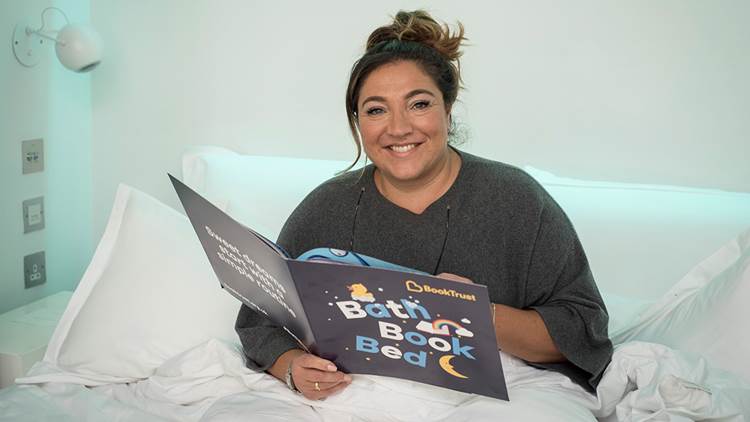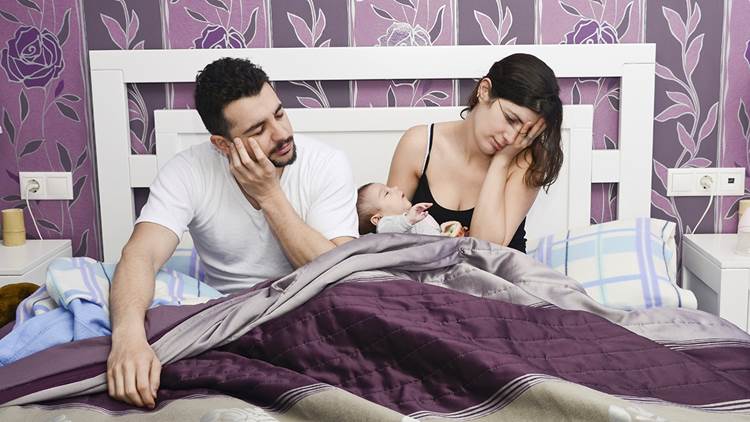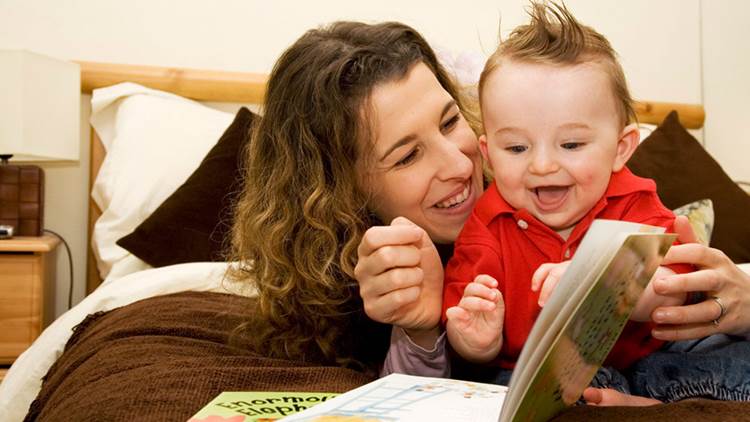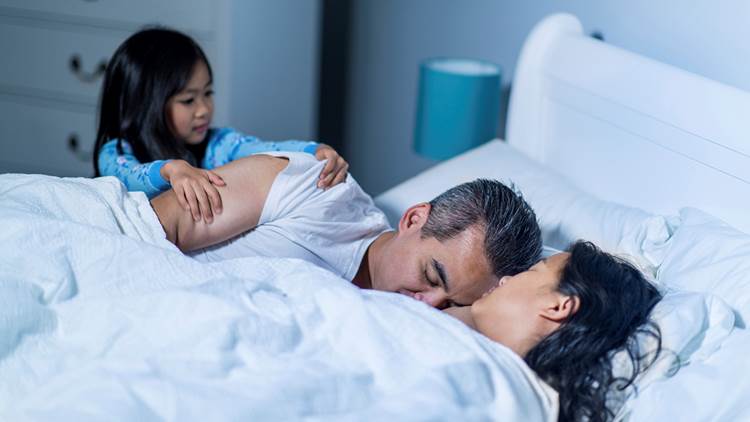Jo Frost: Are you setting a bad bedtime example?
Published on: 24 April 2017 Author: Jo Frost
Sleep isn't a privilege - it's a necessity. But not all parents and carers are getting enough shut-eye, with dramatic effects. Our Bath, Book, Bed parenting expert Jo Frost explains why your bedtime routine is just as important as your children's.

Everyone caring for a child knows the struggle - finding enough time for work and a social life can seem like a nearly impossible balancing act. Unfortunately, when stress is high and time is in short supply, the one daily activity that too often gets cut back is also the one we need the most: SLEEP.
Science still hasn't completely pinpointed the reason why we need such a long period of rest, but it's clear that the time we spend sleeping allows our bodies and minds to relax and heal from the stresses of the day. Unfortunately, in our increasingly technology-dependent world, we've grown accustomed to making ourselves accessible on a 24/7 basis - and that comes with a never-ending barrage of media stimulation and personal demands.

What generally suffers most is the length and quality of our sleep and, over time, our health and relationships. I hear carers who aren't getting enough sleep say, 'It's just impossible to find the time', but some people seem to treat parenting as a competitive sport - being too busy and looking tired is worn like a badge of honour.
It pains me to see that even the tiniest bit of free time can serve as a finger-wagging reminder that you are not doing enough to dedicate total commitment to your child. It doesn't seem to matter if it comes at the cost of your mental and physical health. In this type of atmosphere, parents could be setting an unrealistic example that can have profound repercussions on their child's mood and health.
A child's first method of safely exploring the world around them is to mimic the behaviour of their caregivers. For many children, this means enjoying the particular type of music a parent plays for them or preferring the food they're served at home. But for others, it could be following an adult's unhealthy example of spreading themselves too thinly and leaving little time for essential activities like sleep and play.

Play is so vital in the early years of a child's life - it promotes brain development, allows children to navigate and overcome their fears, fosters independence and positive self-esteem, and can help children bond with the adults around them. Unfortunately, the carefree play that used to be an integral part of children's daily experience has been all but eliminated for many young people. Schools are slashing break times and overworked parents, hoping to provide enrichment in their kids' daily lives, are overscheduling their little ones.
And it should come as no surprise that when a child doesn't sleep well, neither do the parents. A child's poor sleep puts a serious strain on their emotional and physical well-being, while for parents, the effects of sleep deprivation, coupled with the stresses of an adult schedule, can be the catalyst for major dysfunction throughout the entire family.
After a while, a lack of sleep makes it impossible for even the most loving and nurturing individuals to parent effectively - it can make you short-tempered, depressed, and may even contribute to relationship problems. When your doctor recommends that you get at least eight hours of sleep a night, it's for a reason - research has suggested that a lack of sleep is linked to diabetes, obesity, high blood pressure and heart disease.
So what can we actually do to get a better night's rest?
One of the easiest ways to improve the quality and quantity of our sleep is simple, but gets a surprising amount of resistance when it's suggested: turn off all technology for an hour before bed. This idea may seem preposterous to us these days, but believe me, it is not a form of punishment!

Research suggests that the blue light emitted from screens can have a negative effect on our ability to get to sleep and stay asleep. A healthier habit is to practise a routine where you treat yourself to a few chapters of a book or one of your favourite magazines and turn all the lights off before going to sleep.
Even small differences during the day can have a huge impact, like cutting out the caffeine we drink in the afternoon, keeping active, and eating fewer sugary and high fat foods. Despite this culture of self-imposed busy-ness that we have adopted, a good night's sleep is possible. If we focus on the time we have and make a few minor adjustments to our routines, the benefits go far beyond ourselves and even our children.
So yes, your inbox can wait until tomorrow - because the only thing on your mind should be counting sheep.
Topics: 0-1 year, 2-3 years, 4-5 years, Bath, Book, Bed, Parent/carer, Features




